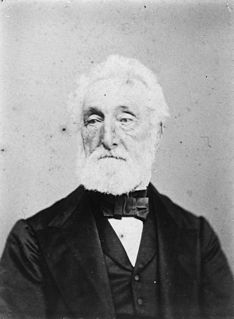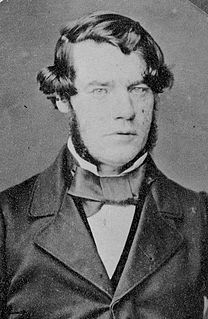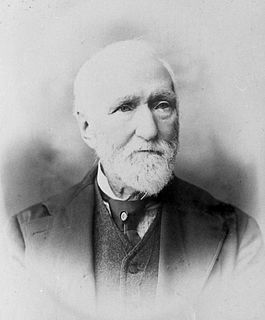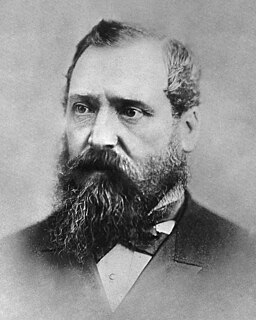Related Research Articles

The Hereford is a British breed of beef cattle originally from the Herefordshire in the West Midlands of England. It has spread to many countries – there are more than five million purebred Hereford cattle in over fifty nations worldwide. The breed was first exported from Britain in 1817, initially to Kentucky. It spread across the United States and Canada, through Mexico, to the great beef-raising countries of South America. Today Herefords dominate from Australasia to the Russian steppes, including Israel, Japan, continental Europe and Scandinavia, temperate parts of Australia, Canada, the United States, Kazakhstan and Russia, the centre and east of Argentina, Uruguay, Chile, and New Zealand, where they make up the largest proportion of registered cattle. They are found all over Brazil and in some Southern African countries, notably South Africa, Zambia and Zimbabwe. Their original popularity among ranchers of the American Southwest testified to the hardiness of a breed originating in cool, moist Britain, but shown to thrive in harsher climates on nearly every continent. The World Hereford Council, is based in Britain. There are currently 20 Hereford societies in 17 member-countries and a further eight in 10 non-member countries. In the United States, the official Hereford organization and breed registry is the American Hereford Association, the second-largest society of its kind in the country.

Frederick Ward Merriman, generally called Frederick Merriman, was a 19th-century New Zealand politician.

Thomas Houghton Bartley JP was a New Zealand politician.
Charles John Taylor (1826–1897) was a New Zealand politician.
Robert Graham was a 19th-century New Zealand politician in the Auckland area.

Thomas Maxwell Henderson was a New Zealand politician. He was one of the earliest settlers in Auckland. He was a significant entrepreneur, and the Auckland suburb of Henderson bears his name.

John Williamson was a New Zealand politician, printer and newspaper proprietor.

Daniel Pollen was a New Zealand politician who became the ninth Premier of New Zealand, serving from 6 July 1875 to 15 February 1876.

Sir Christopher James Parr was a New Zealand lawyer and politician of the Reform Party. He was Mayor of Auckland, a Member of Parliament representing the Eden electorate, a Minister in the Reform Government, High Commissioner in London and a Member of the New Zealand Legislative Council.
Eugene Joseph O'Conor was a New Zealand Member of Parliament for the Buller electorate, in the South Island.

William John Hurst was a 19th-century Member of Parliament in New Zealand and Mayor of Auckland.

Charles Edward Button was a solicitor, Supreme Court judge, Mayor of Hokitika and later Birkenhead, and an independent conservative Member of Parliament in New Zealand. Born in Tasmania, he came to New Zealand with his wife in 1863. He first lived in Invercargill, then in Westland, and after a brief period in Christchurch, he settled in Auckland. He was an MP for two periods, and when he was first elected to Parliament, he beat his colleague, friend, political opponent and later Premier Richard Seddon; this was the only election defeat ever suffered by Seddon.

William Thorne Buckland was a 19th-century Member of Parliament in New Zealand.
The third New Zealand Parliament was a term of the Parliament of New Zealand. Elections for this term were held between 12 December 1860 and 28 March 1861 in 43 electorates to elect 53 MPs. Two electorates were added to this during this term, Gold Fields District and a new Dunedin electorate created by splitting the existing City of Dunedin into Dunedin and Suburbs North and Dunedin and Suburbs South, increasing the number of MPs to 57. During the term of this Parliament, six Ministries were in power.
The 4th New Zealand Parliament was a term of the Parliament of New Zealand.
George Hart was a 19th-century Member of Parliament in the Canterbury region of New Zealand.
Robert Campbell was a 19th-century New Zealand Member of Parliament representing Oamaru (Otago).
Joseph Newman was a 19th-century Member of Parliament in the Waikato, New Zealand.
Joseph May was a 19th-century Member of Parliament from the Auckland Region in New Zealand.
References
- Scholefield, Guy (1950) [First ed. published 1913]. New Zealand Parliamentary Record, 1840–1949 (3rd ed.). Wellington: Govt. Printer.CS1 maint: discouraged parameter (link)